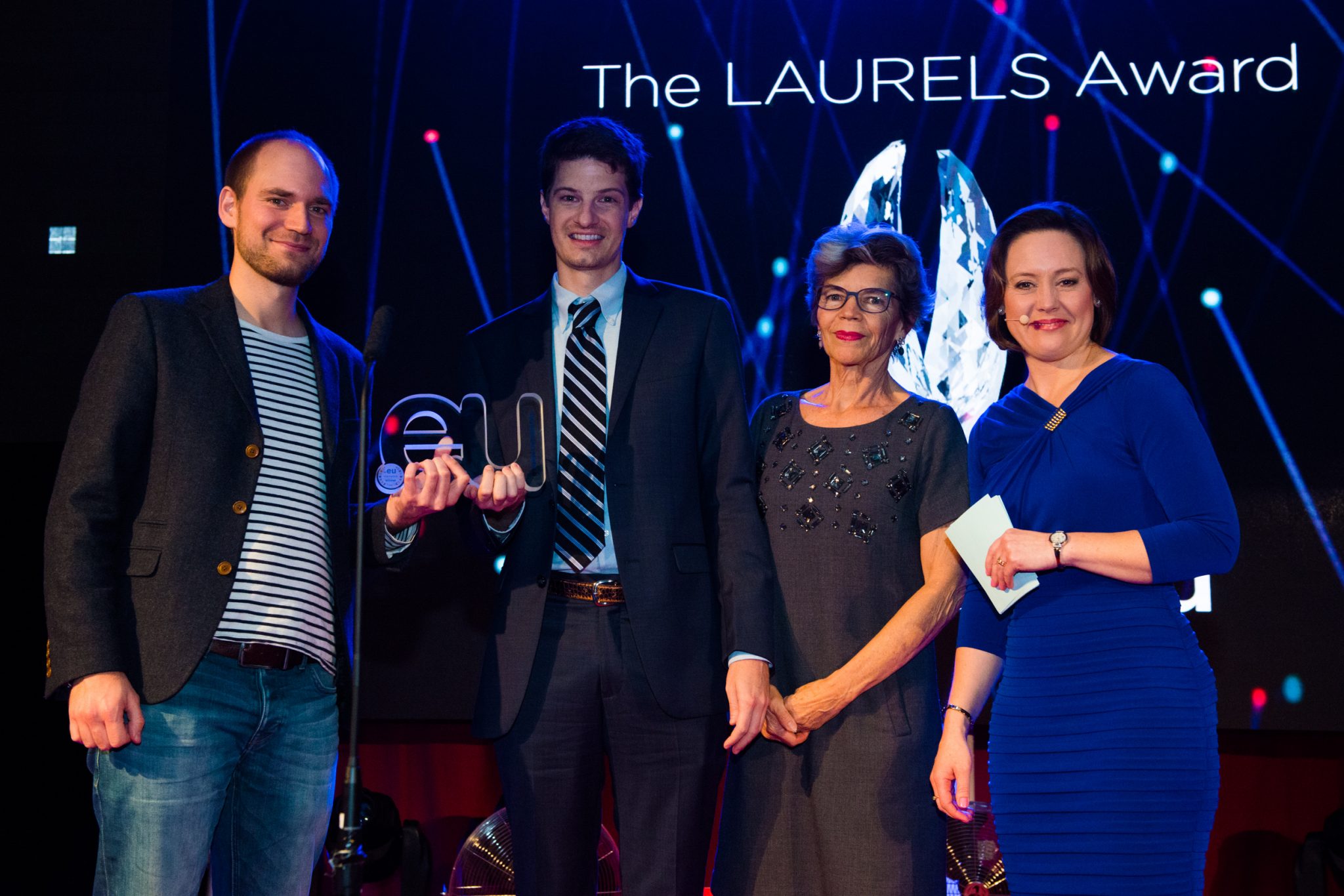With immense pleasure and excitement, I can announce that Ancient History Encyclopedia has won the .eu Web Award 2016 in the Laurels (education) category! This is great confirmation that providing accurate and easy-to-read history information for free is appreciated not only by teachers, students, and history enthusiasts around the world but also by major institutions within the European Union.
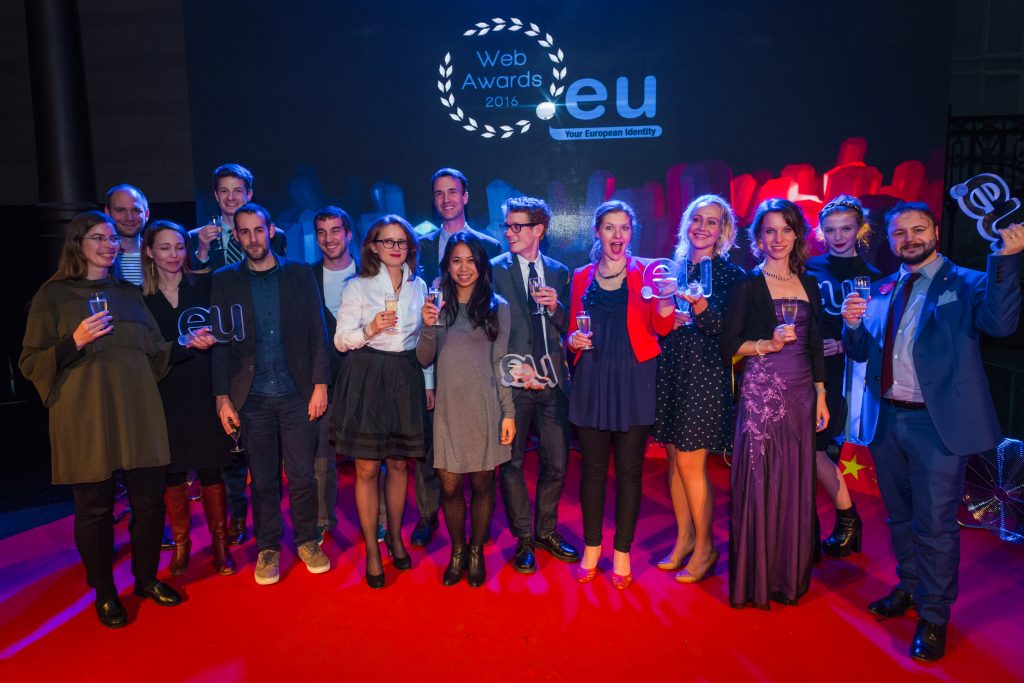
All of the 2016 .eu Web Award winners on stage in Brussels, Belgium. Jan and James from Ancient History Encyclopedia are in the background on the left hand side of the picture.
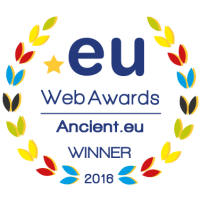
AHE is the winner of a 2016 .eu Web Award.
First of all, I want to thank every member of our team (currently 12 volunteers and one employee) for investing their passion and time, the many contributors who have shared their knowledge by submitting content, our members for supporting us financially, and also our readers for sending us feedback and suggestions. Without the concerted effort of people from all over the world, none of this would have been possible.
In the Laurels category, we competed with two other innovative finalists:
- Go Lab Project: They provide virtual science labs for schools on tablets, where teachers and students can set up experiments without requiring expensive equipment.
- Smartmove Project: They work to promote the use of public transport in rural areas across Europe.

EURid has overseen the competition since 2014.
James (our Communications Director) and I had the pleasure of attending the exquisite awards ceremony at the Museum of Natural Sciences in Brussels, Belgium. Literally surrounded by dinosaurs, we celebrated the leading companies of Europe’s digital future. We met “thought-leaders” from all over Europe, whose companies and institutions are pushing the boundaries in all sectors.
One of the recurring themes of the awards ceremony was the idea of a common European identity. This resonated a lot with us, as we believe that history is the foundation upon which we define ourselves as societies and cultures. History also shapes the way understand and feel about other cultures. Without a historical understanding of how we are all connected through our shared past, it is difficult to truly understand the modern world.
Nationalism and xenophobia are on the rise, and we hope that by making history relevant to a wide audience, we’re doing our bit to promote intercultural tolerance and understanding, while also sparking curiosity and meaningful dialogue between civilisations.
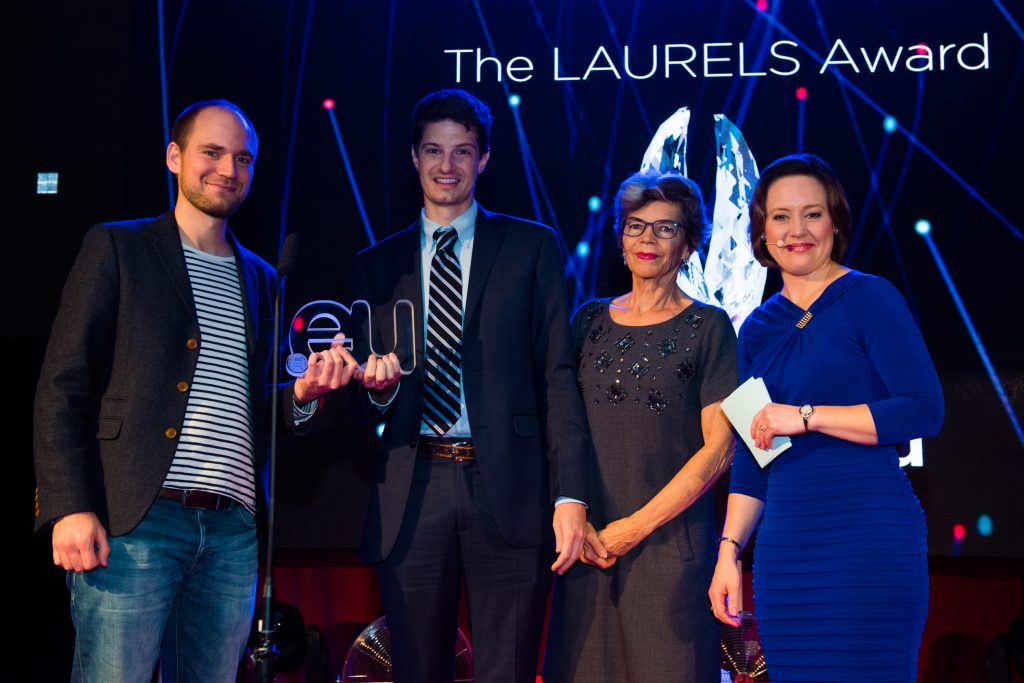
Left to right: Jan van der Crabben (CEO, Ancient History Encyclopedia), James Blake Wiener (Communications Director, Ancient History Encyclopedia), Megan Richards (Principal Advisor, European Commission), Sally Bundock (Awards Host and BBC business journalist).
The awards committee praised the fact that our content is not only of high quality, but also wide-ranging across borders, cultures, and continents. Our way of presenting a global view of history, based on clear design and multimedia content, impressed them. It’s taken us time, but we’re now undoubtedly the world’s most-read history encyclopedia, whether online or in print.
Enough with the self-praise… here are some videos and photos from the event!
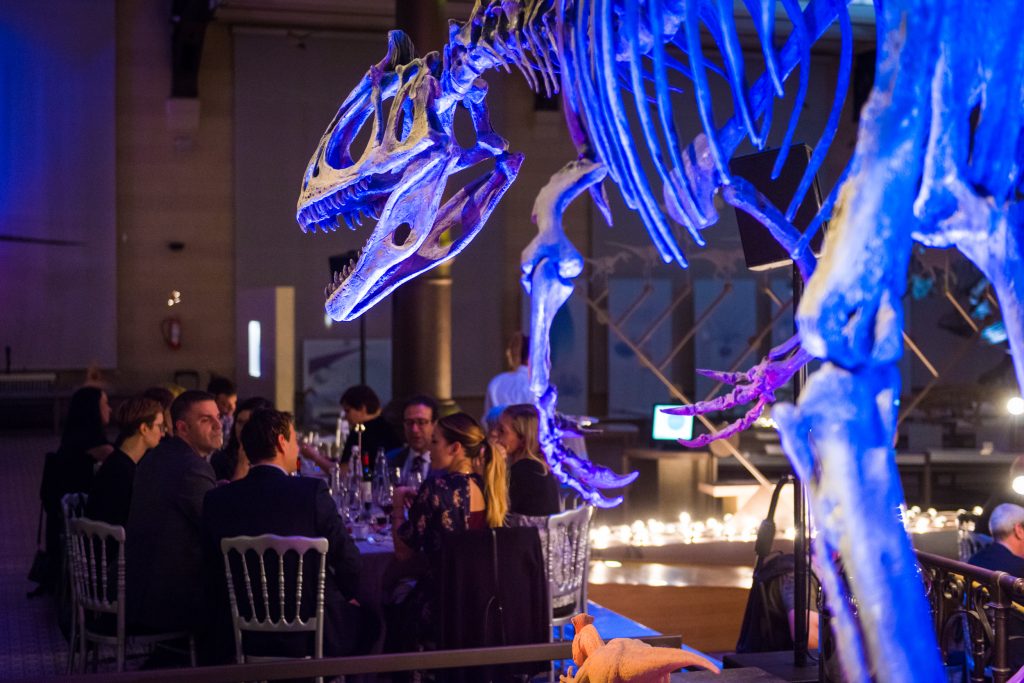
Dining among dinosaurs in Brussels was an unusual and exciting experience.
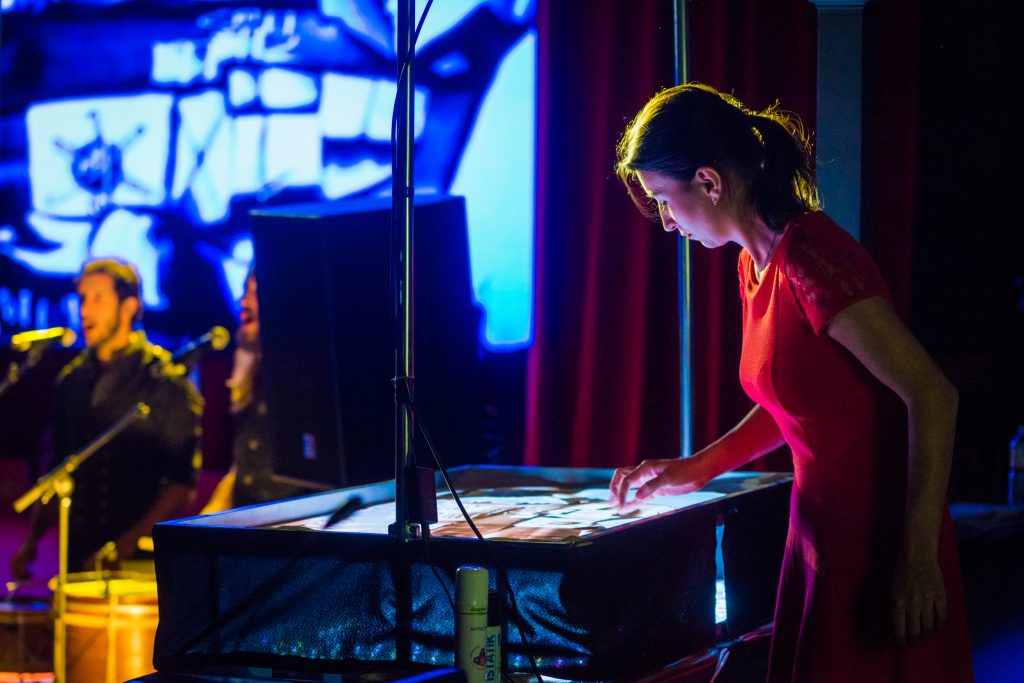
Amazing sand-painting show set to music by the Basque band, Kalakan.
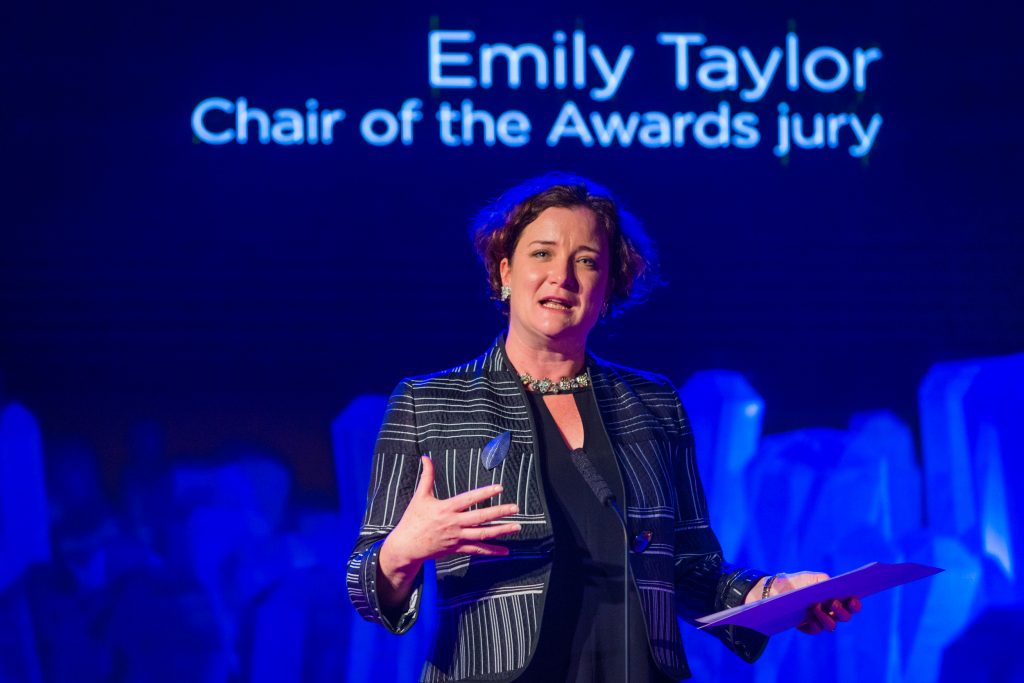
Emily Taylor, Chair of the Awards Jury, which comprised of communication experts. The awards are run by EURid, the registry manager of the .eu country code domains, appointed by the European Commission.
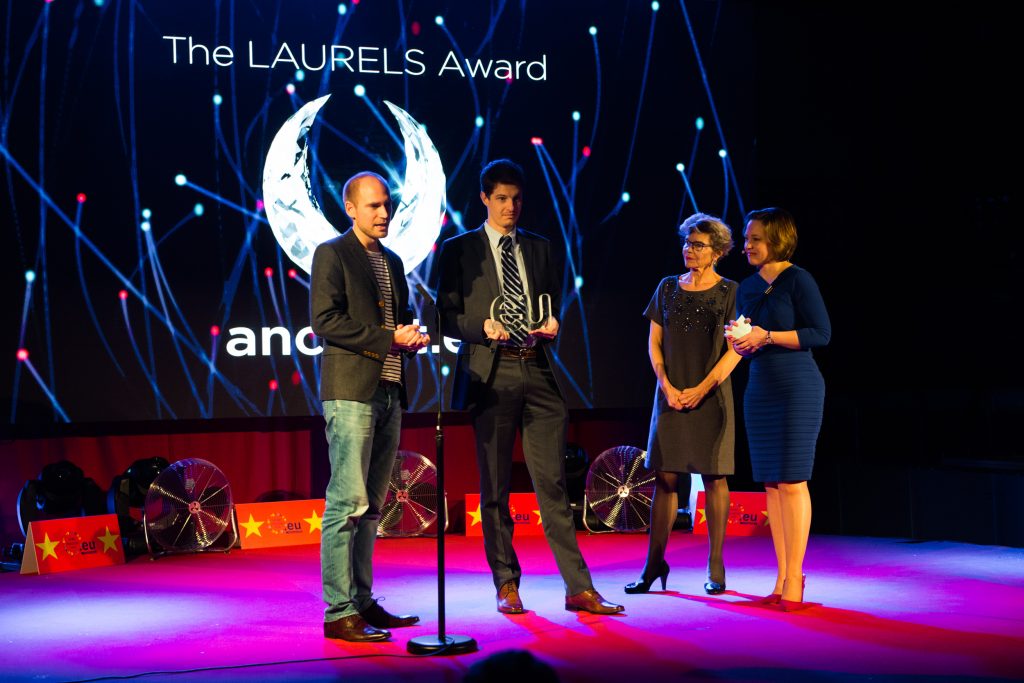
Jan giving his acceptance speech on November 16, 2016.
